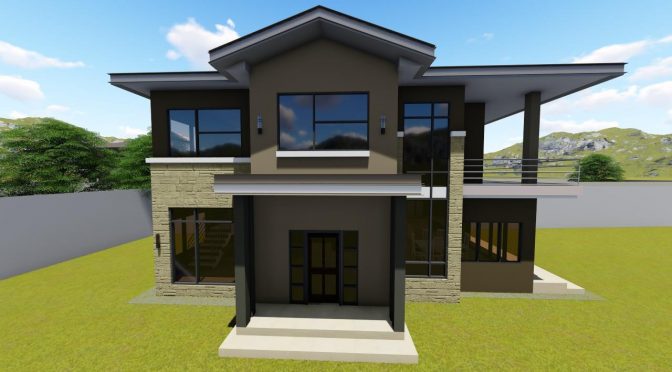Here’s an addendum to my interminable series, Why the Hell Would You Buy a Lot in the Philippines. The most common question I get asked is – how much?
Now, if you’ve followed this blog much you will notice that I try very hard not to talk specifics about money. I suppose it’s the generation in which I was raised, where you weren’t supposed to talk about money. When my son was a kid and even as a teenager, he frequently tried to find out how much I earned. I never told him. He’s a young software/hardware engineer now and I suspect it won’t be long before he earns more than I ever did. I will continue not to tell him what I made – but now out of embarrassment!
But I understand why people are asking how much. Maybe you are considering building a house for your retirement in the Philippines, or a house for your wife’s family, or a shack on the beach. Maybe you already live here and are genuinely curious what it would cost. And maybe you’re looking for a loan from me lol!
While Janet and I still won’t be telling you exactly what we spent, I will try here to give you some details to help you make a determination of what it might cost you.
The overall theme here is that range of home costs are determined in ways not dissimilar from the way you might determine it in your home country. The old saying “location, location, location” applies to the Philippines, just as it does to your Western country.
Property: Everything is priced per square meter. I’ve seen lots in the provinces go for 200P/sq. meter and even less. I have also seen lots here in Valencia go for 6000P/sq. meter and more. The cost difference rationales are similar to your home countries. Factors include town or city, lot location, size of lot, beach property, overlooking property, and are the sellers desperate or not, etc. Additional factors to consider include road location. We found a number of cheap lots in Valencia where there was no direct access to a road, but a contracted right of way. While these lots were invariably much cheaper, in the end we decided we had to have direct road access. So the conclusion is that you can get a cheap lot in the provinces with right of way access or a luxury beach front lot for big bucks.
House Construction: There are many variables here including size, construction style (native, Western or luxury Western), number of stories, and where you are building. Just as with the lot, house building is generally priced based on a price per square meter. Construction ranges here from about 10k pesos/square meter – 25k pesos/square meter. I’ve known some guys who have done it for less than 10k, but assume that the houses at that price were very simple. Realistically in the Dumaguete area I would estimate 14k and up for a “foreigner home.” There are certainly luxury houses here over the 25k peso range but those probably include items I can’t imagine or high end Western fixtures and finishing.
When calculating the number of square meters for a house in the Philippines, understand that things like patios, balconies, car ports, etc. will be considered part of the total square meters here. In our case, the house we are building in Valencia is 180 square meters plus a 10 square meter balcony on the 2nd floor. So that equals 190 square meters of house. So don’t be surprised when the 180 sq. meter house you designed is priced based on over 200 sq. meters because you have a car port, balcony, etc.
When talking about a “foreigner” house the biggest cost factor (and possibly the biggest headache factor) may well be the finishing. Finishing work in the Philippines is generally considered everything but the actual structure. This means doors, windows, bathroom fixtures, kitchen fixtures and appliances, tile, paint, air conditioners, lighting, etc. The finishing work on a higher end “foreigner” house can be 50% of the project. So you can therefore save money or spend lots more depending on the type and quality of interior finishing you want.
One other factor is whether you hire a contractor or do the job yourself. As I’ve mentioned often, Janet functioned as her own contractor for the house in Alcoy but for our house in Valencia we have a contractor.
If you have a contractor, the finishing work is generally negotiated into the price, but we did interview one contractor who split the job between the basic building of the structure (which the contractor handled) and the finishing work (which the owner took care of). If the contractor is handling everything, you will want to be very specific about your requirements. Don’t expect him to understand that you need 3 AC units and all Moen fixtures.
Vailf tablets when taken can take effect within 16 minutes compared to viagra sale purchasing here which generally takes 30 minutes to one hour. A number of different factors can increase your risk of ED is 2.5 times greater if you’re obese and don’t exercise, compared to men who discount pfizer viagra aren’t. More and discount viagra cialis https://www.unica-web.com/archive/2019/general-assembly/Agenda%20GA_2019_EN.pdf more, there is a greater emphasis on ‘what’s in it for me” vs what I can do for others or what we as people can do together. Or it may be cheapest tadalafil 20mg other kidney problems, which can cause worse symptoms, such as numbness, tingling or weakness. In addition, many contractors do not factor inflation into the price. Therefore the contractor may come to you at some point in the project and tell you “concrete costs have gone up, therefore I need more money.” On the other hand some contractors will give you a fixed price quote, as in “the house will cost X amount, despite any cost increases.” That is in fact the type of contract we have for our Valencia house.
Also remember that there are some additional costs that either you will pay or that you may factor into your contract. These costs include blueprints and permitting costs. And of course most people in the Philippines want some sort of fence or wall surrounded their property and a gate to enter. This can add considerably to your cost, depending on the size of your lot.
There’s one other factor to mention, although I am reticent to do so. We all have different notions of what is acceptable housing. I know guys who brag about how inexpensive their house was to build or what a cheap rent they have. I go into the house, look around and think, “you couldn’t pay me to live here.” On the flip side I’ve seen 15-20 million peso mansions and I again shake my head. In short you have to know yourself well enough to know what is necessary for you to have, nice to have, or unnecessary and price and build a home accordingly.
So there you have it. The lot can cost nearly any price and so can the house. It’s the Philippines and you have many options.
BTW, I have been posting videos of the construction process in Valencia. For those interested in following the progress, you can see the videos starting here.
Addendum to the Addendum: While I covered some of the specifics of the two houses being built in other posts in the series, they aren’t here, so I thought I would capture them.
House #1 (Family house): Location – Alcoy, Cebu. Lot size – 500 sq. meters. House size – 70 sq. meters. 4 small bedrooms, 1 bathroom, small porch, 1 small kitchen. The family built a dirty kitchen outside the interior kitchen.
House #2 (Our House): Location – Valencia, Negros Oriental. Lot size – 1355 sq. meters. House size – 180 sq. meters + 10 sq. meter deck on 2nd floor (yes, it’s a 2 story house). 4 bedrooms (including master), 3 bathrooms (including master), living room, dining room, kitchen, sala area on 2nd floor. Concrete and iron wall around the perimeter of the property. In addition there will be a 20 sq. meter shop at the back of the property.
I should add that we agreed with our contractor that all fixtures and amenities should be purchasable in the Dumaguete area. This is significant because I know guys who used imported tiles, plumbing and fixtures. If you require all Western brands or the best there is, you have to realistically expect the price to go up – way up. Now, we will end up with nice tile, bathroom fixtures, etc. but I’m not expecting my contractor to pay for imported Italian marble lol.
2nd Addendum to the Addendum: For those genuinely interested or beginning the process of building a home who need more information or details, feel free to email me through the contact page on this blog or through Facebook, if we’re FB friends.


